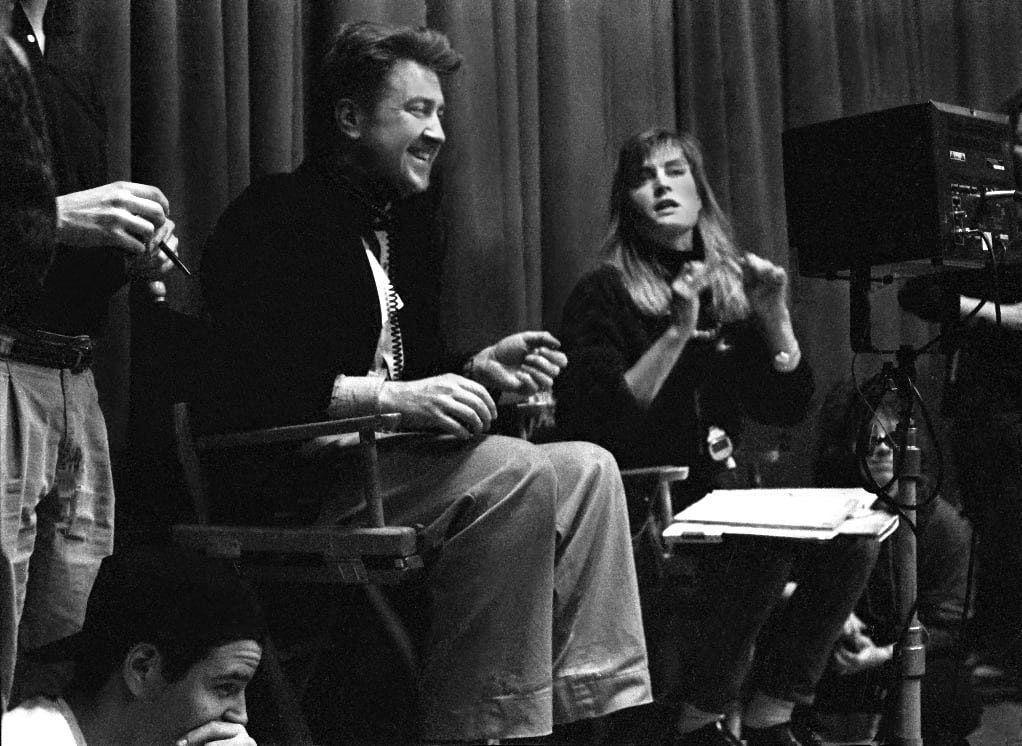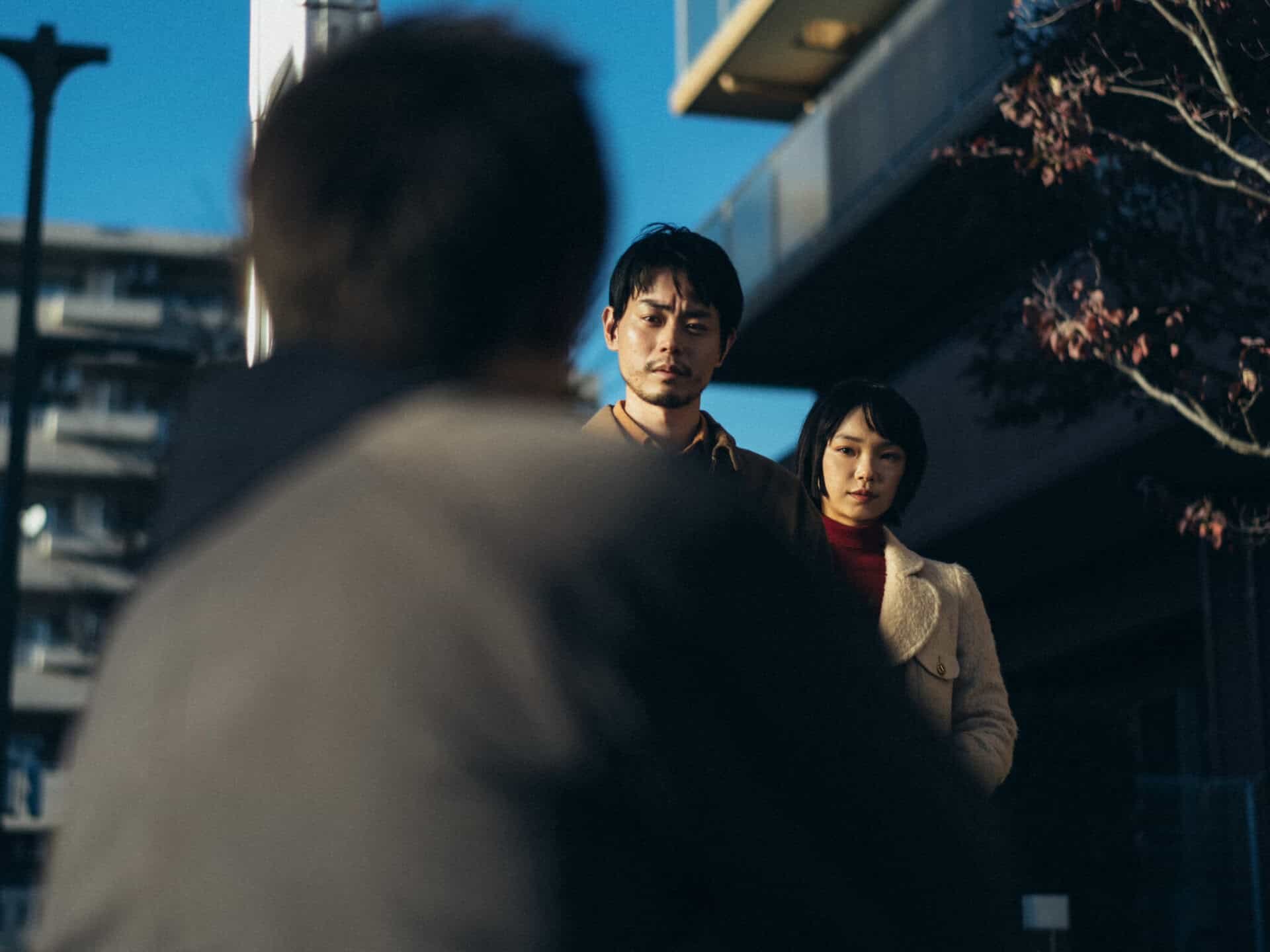
The modern master of Japanese horror discusses his latest, a thrilling examination of the consequences of digital-age alienation.
Touted as the master of the Japanese thriller since the success of Cure in 1999, each release from Kiyoshi Kurosawa is anticipated as a promise of excellence. The director presented his 27th feature film, out of competition, at the 81st Venice Film Festival this year. As intriguing as it is eccentric, Cloud questions our connection to others, good and evil, heaven and hell, love, jealousy, and other biblical values with a Kurosawa-esque twist. We met the punk of Japanese cinema.
Here’s the story on paper: “Ryosuke Yoshii is an ordinary man who makes a living by selling things online while working in a factory. Gradually, he earns the resentment of those around him and will have to fight for his life.” Indeed, Yoshii will quickly be envied by his friend, who, also a reseller, fails to encounter the same success. He will also attract the resentment of his suppliers, forced to sell him their stocks at a loss, as well as angry buyers who realised only too late they had purchased counterfeit items at high prices. On top of this peculiar list, comes his boss, upset that Yoshii repeatedly refuses a promotion in a world where corporate advancement is paramount, thus considered an honor.
Gradually, Yoshii’s success stirs a hatred in them who decide to band together against him. This newfound friendship leads them straight into unchecked and rather incomprehensible violence in a “normal” world. Fueled and inflamed by online networks, this hatred soon finds its way to the young man’s hiding spot, who, despite being in a relationship, ends up alone in facing this adversity, except for his young assistant whose inexplicable kindness contrasts with Yoshii’s detractors’ evil.
This is probably what seems strange with Cloud. How can a factory worker, who found a way to make money by reselling online, become the target of such deep resentment and violence? “I originally wanted to make an action movie, which is why you find violence in the film, but Americans do that all the time, and no one seems shocked.” Kurosawa has a point, as he touches on the human brain’s pliability – how we normalize something simply because we’re repeatedly exposed to it, such as extreme violence. “But this violence also comes from the fact that these people meet online. They all have something against Yoshii, and feeding off each other, without even having met in person, they decide just like that to kill a man, as if it was all a game!” Another point for the director, who, through action, normalizes the murderous impulses of humans, exacerbated by our new means of communication, which seemingly detach us from reality and critical thinking.
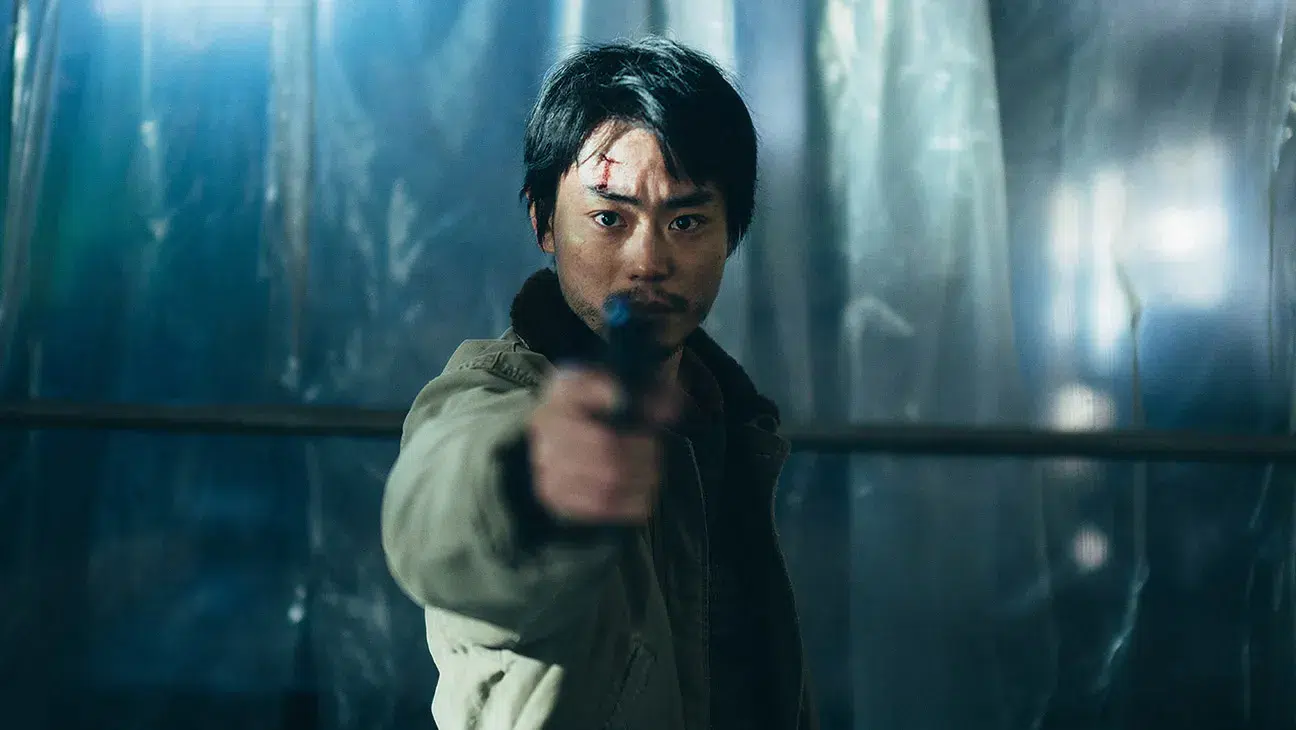
A still from Cloud (dir. Kiyoshi Kurosawa)
The characters in Cloud appear on screen without much introduction; they are there, on the screen, as they are, take it or leave it. Kurosawa doesn’t bother with detailed explanations of the characters’ psychology—you have to catch up on the go. This demands a certain mental gymnastics that’s uncomfortable, yet intrinsic to the nature of cinema.
Yoshii, the somewhat unsympathetic and rather cold main character, makes unexpected but always resolute choices. He seems unsuited to the world, as his instincts and desires outpace social conventions. His disconcerting self-confidence, even as things spiral out of control, unsettles the viewer. This is a familiar feeling in Kurosawa’s films, where characters, often trapped in their daily lives, seem to be searching for a path toward their true life, an alternate reality. The intriguing Yoshii, whose name echoes the director’s, might just be a kind of alter ego.
“I don’t know if it’s right or wrong, but I didn’t intend to create a character that resembles me. That said, there’s probably a bit of me in all of my characters, and now I’m very embarrassed because I feel like you’ve uncovered my secret!”
Yoshii finds himself out of sync at work, refusing a promotion despite his boss’s insistence, preferring to live off his reselling activities far away in the countryside. Believing in his choices, he is quickly ostracized and threatened—an episode reminiscent of the time Kurosawa was sidelined from Japanese cinema for making choices deemed too far removed from the conventions of pinku eiga (erotic cinema). Indeed, male-female relationships in Kurosawa’s films rarely pass through the lens of eroticism, a genre he seems uninterested in, preferring more chaste situations that nonetheless reveal much about his characters, who often struggle to coexist peacefully or understand each other.
‘Eroticism is a genre I haven’t mastered, in fact, I don’t quite understand it. I’ve tried it several times, but I stopped because I felt so weak at it, so I prefer to leave it to other filmmakers who do a far better job.’
In Cloud, Akiko, the only female character and Yoshii’s fiancée, is apparently the only one capable of eliciting emotions from him. But while he will do everything to ensure they have a comfortable future and a proper marriage, Akiko will begin to act increasingly strange as Yoshii’s troubles grow.
“I think Akiko is a symbol of hope for Yoshii, even though she is an ambiguous character who cannot be labeled as good or bad, as she doesn’t know what she thinks either, and ultimately betrays him. He believes in her blindly, unconditionally, and in the future he will spend with her. It is the only absolute thing for Yoshii, an ordinary man.”
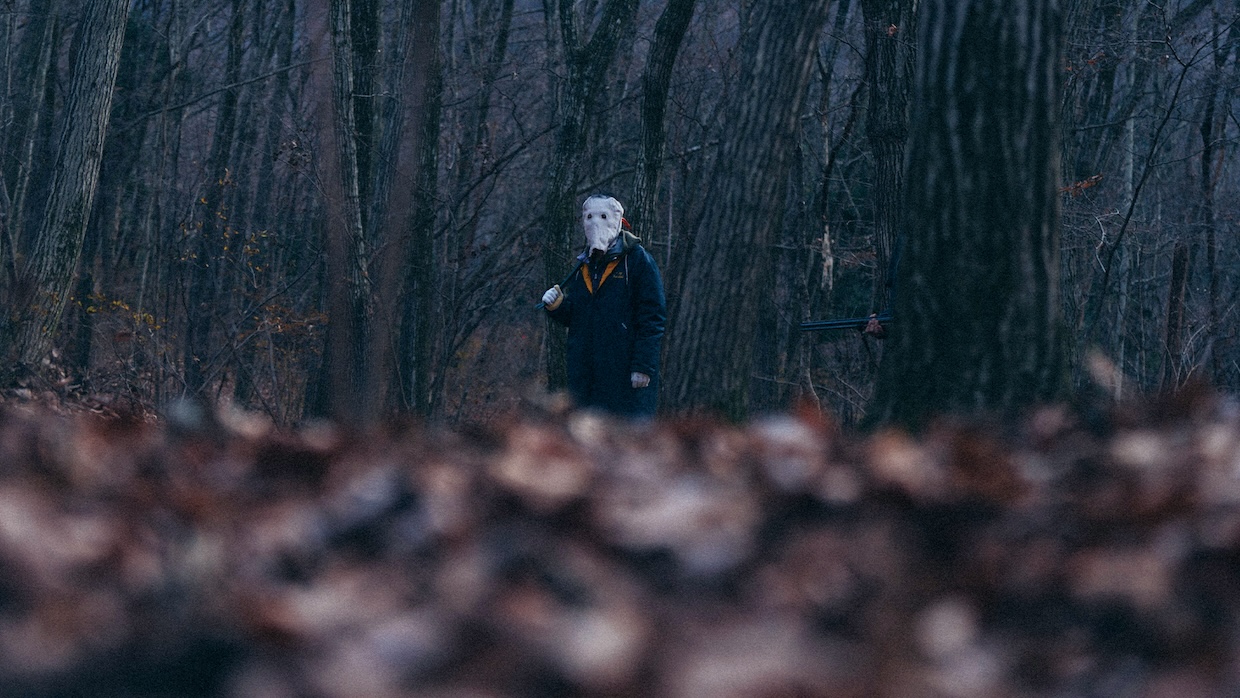
A still from Cloud (dir. Kiyoshi Kurosawa)
It was at university that Kurosawa found refuge, honing his craft before achieving his first major international success with Cure in 1997. Perhaps this is why the filmmaker seems attached to this institution, present in nearly all his films. From The Excitement of the Do-Re-Mi-Fa Girl to Cloud and Creepy, Kurosawa’s plots often take place or refer to this learning space where friendships, and sometimes enmities, are born.
“It’s an interesting way of looking at it, I actually never thought of it this way. Indeed, the relationships I have built during my college years have continued until this day, some in a good way, others less so. In that regard, it might have influenced my writing indeed. But I wish to talk more about Tokyo and the people who live there when they come from rural areas, just like me. They meet at university in Tokyo, and from there, relationships are born, and careers are shaped.”
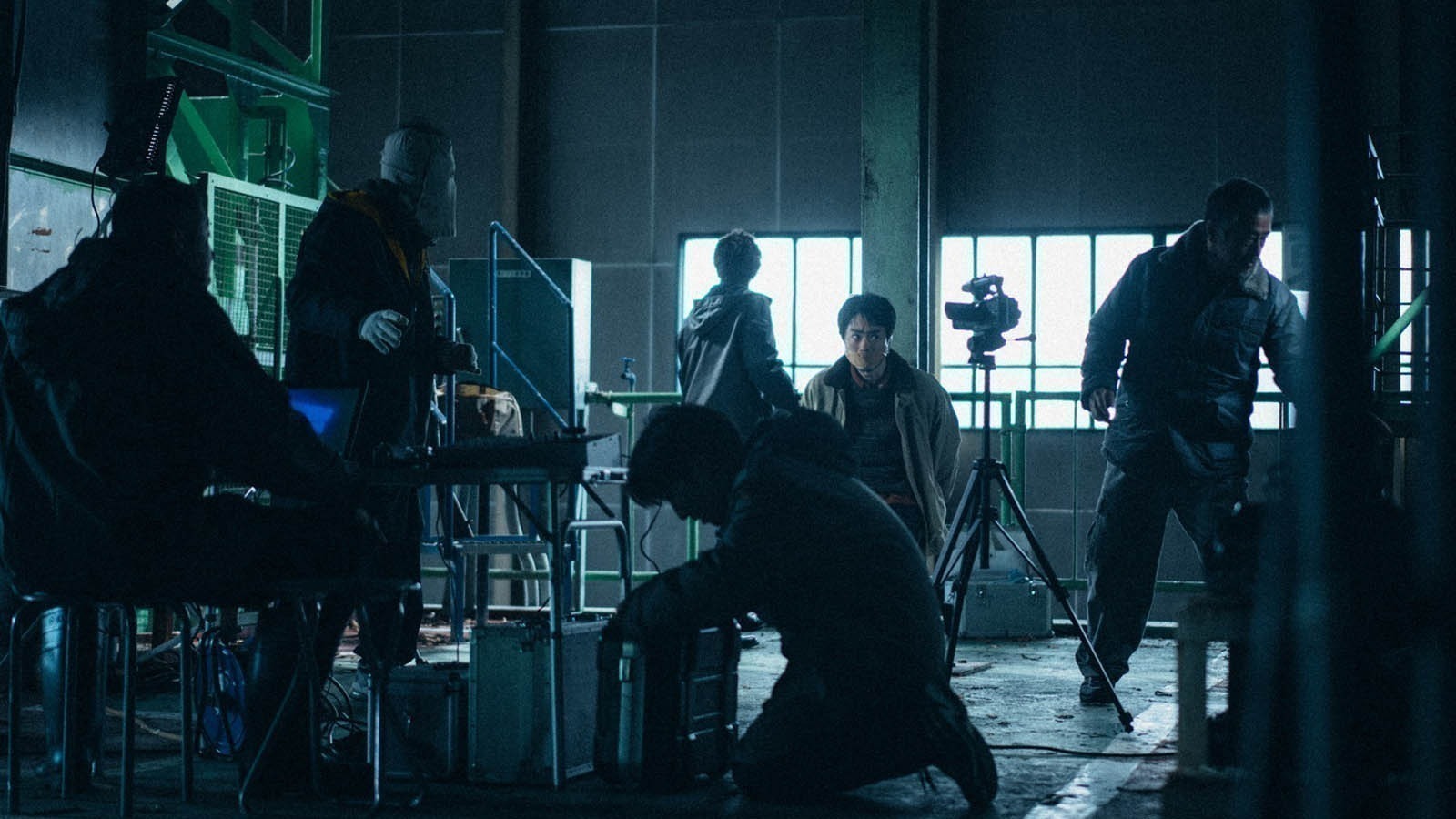
A still from Cloud (dir. Kiyoshi Kurosawa)
After several brushes with death, leaving behind a crime scene worthy of CSI, Yoshii, saved by his assistant with connections in high places, remains stunned by his fate. “From now on, you’ll be able to buy and sell as much as you want; we’ll be behind you to ensure everything goes smoothly.” The figure of the assistant, ever-present during moments of difficulty, aided by men in black suits, hints at the rise of rampant capitalism and unbridled greed. In the face of this assistant’s boundless loyalty, Akiko’s betrayal seems all the greater: ‘When his only hope, his future with Akiko, finally crumbles, he cries, and only then can he finally realises what he has done and the kind of society he is in.'”
“Is this hell?” Yoshii wonders, set against a backdrop of a burning sky at sunset, heading toward a fate where he can fully live his choices. “Some people think Yoshii is going mad, others believe he’s heading to hell. For my part, I think Yoshii realizes that hell is the world he was living in. A world where most of the people who hate him have no hope, no future. And it’s only once he becomes aware of this that he can finally build another world, another life. But of course, you can interpret the ending however you like!”
Despite its sometimes brutal and often absurd form, as the characters’ reactions seem exaggerated, Cloud encourages reflection on our world—a hell fueled by online networks that endlessly deepen the divide between humans, lost in their own inability to connect with one another.

